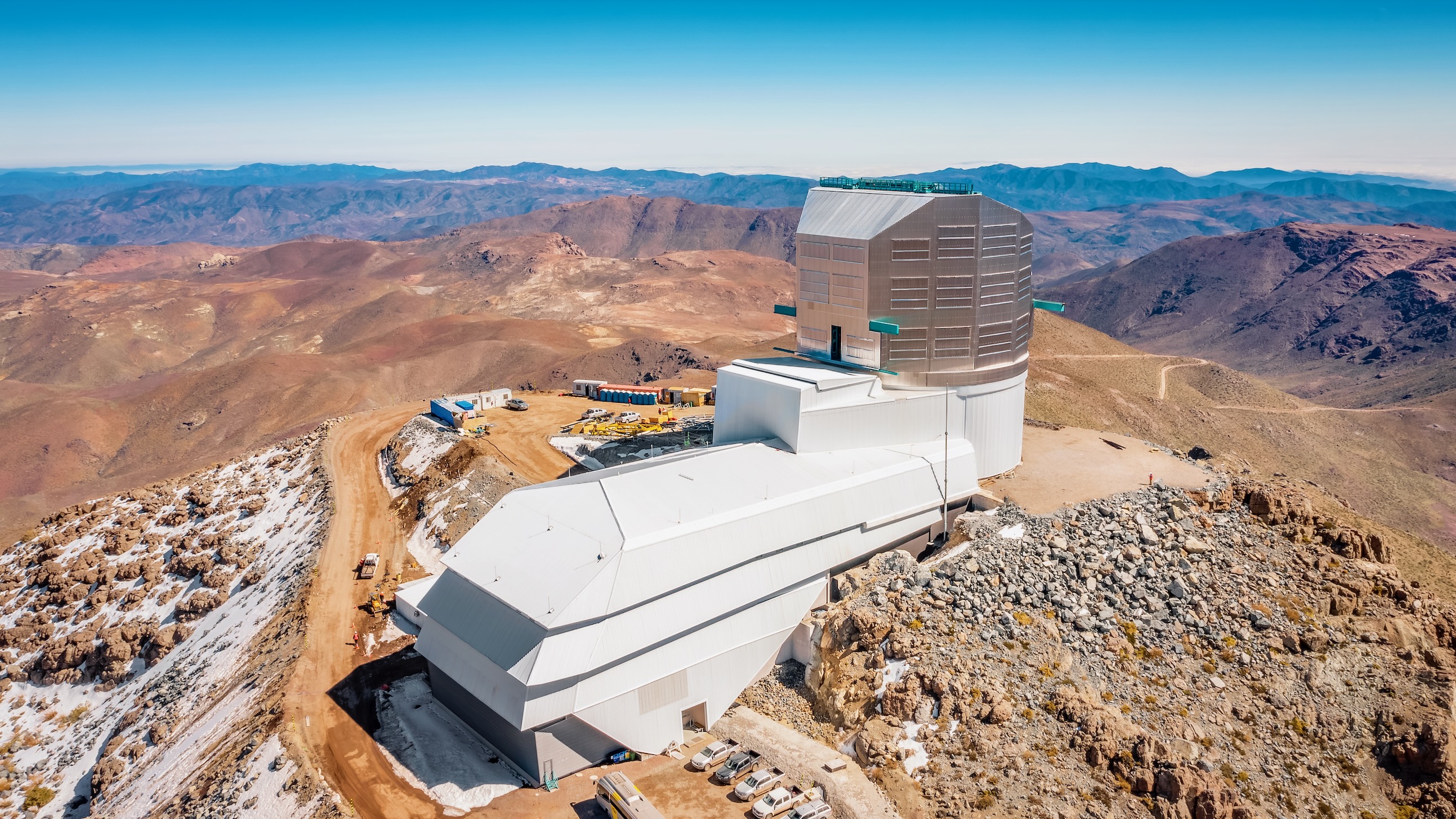An asteroid just zipped past Earth closer than the moon's orbit
There was never a threat to our planet.
A bus-sized asteroid made a harmless close pass by our planet on Sunday (Oct. 17).
Asteroid 2021 TG14 passed by Earth at a distance of roughly 155,000 miles (250,000 km). That's well within the orbit of our moon, which orbits at an average distance of nearly 239,000 miles (385,000 km).
NASA is always interested in close passes like this, just in case astronomers can get some valuable telescope time for a rare close-up glimpse of a small world. Asteroids are leftover fragments from the early solar system, when our neighborhood was a collection of icy and stony small objects (before the planets were formed).
NASA has freely posted all the orbital parameters of the object for the public to see. The agency's Planetary Defense Coordination Office works with other government agencies and a network of partner telescopes to keep an eye on potentially threatening objects, but this asteroid isn't one of them. Scientists have found no imminent threats to our planet.
Related: See the dramatic increase in near-Earth asteroids NASA has discovered (video)
Coincidentally, the approach is taking place as asteroids once again are hitting the news in both fact and fiction. Just on Saturday (Oct. 16), NASA launched its Lucy mission that will eventually focus on asteroids in Jupiter's orbit, known as Trojans. These asteroids have never been visited up close before.
The agency is also in the middle of an asteroid sample-return mission known as OSIRIS-REx (Origins-Spectral Interpretation-Resource Identification-Security-Regolith Explorer). Its sample return capsule is due to come back to Earth in 2023 bearing bits of a near-Earth asteroid called Bennu. NASA's Psyche mission will also launch in 2022 to study a metal asteroid up close.
Breaking space news, the latest updates on rocket launches, skywatching events and more!
These new missions are only the latest in a long line of spacecraft that have swung by small bodies in our solar system, some picking up samples along the way.
In fiction, the Netflix dark comedy "Don't Look Up" will release in December, starring Jennifer Lawrence, Leonardo DiCaprio and Jonah Hill. The film follows a long line of fictional movie asteroids threatening the Earth and catalogs some satirical responses by White House officials (and scientists) to the impending problem.
Follow Elizabeth Howell on Twitter @howellspace. Follow us on Twitter @Spacedotcom and on Facebook.
Join our Space Forums to keep talking space on the latest missions, night sky and more! And if you have a news tip, correction or comment, let us know at: community@space.com.

Elizabeth Howell (she/her), Ph.D., was a staff writer in the spaceflight channel between 2022 and 2024 specializing in Canadian space news. She was contributing writer for Space.com for 10 years from 2012 to 2024. Elizabeth's reporting includes multiple exclusives with the White House, leading world coverage about a lost-and-found space tomato on the International Space Station, witnessing five human spaceflight launches on two continents, flying parabolic, working inside a spacesuit, and participating in a simulated Mars mission. Her latest book, "Why Am I Taller?" (ECW Press, 2022) is co-written with astronaut Dave Williams.
